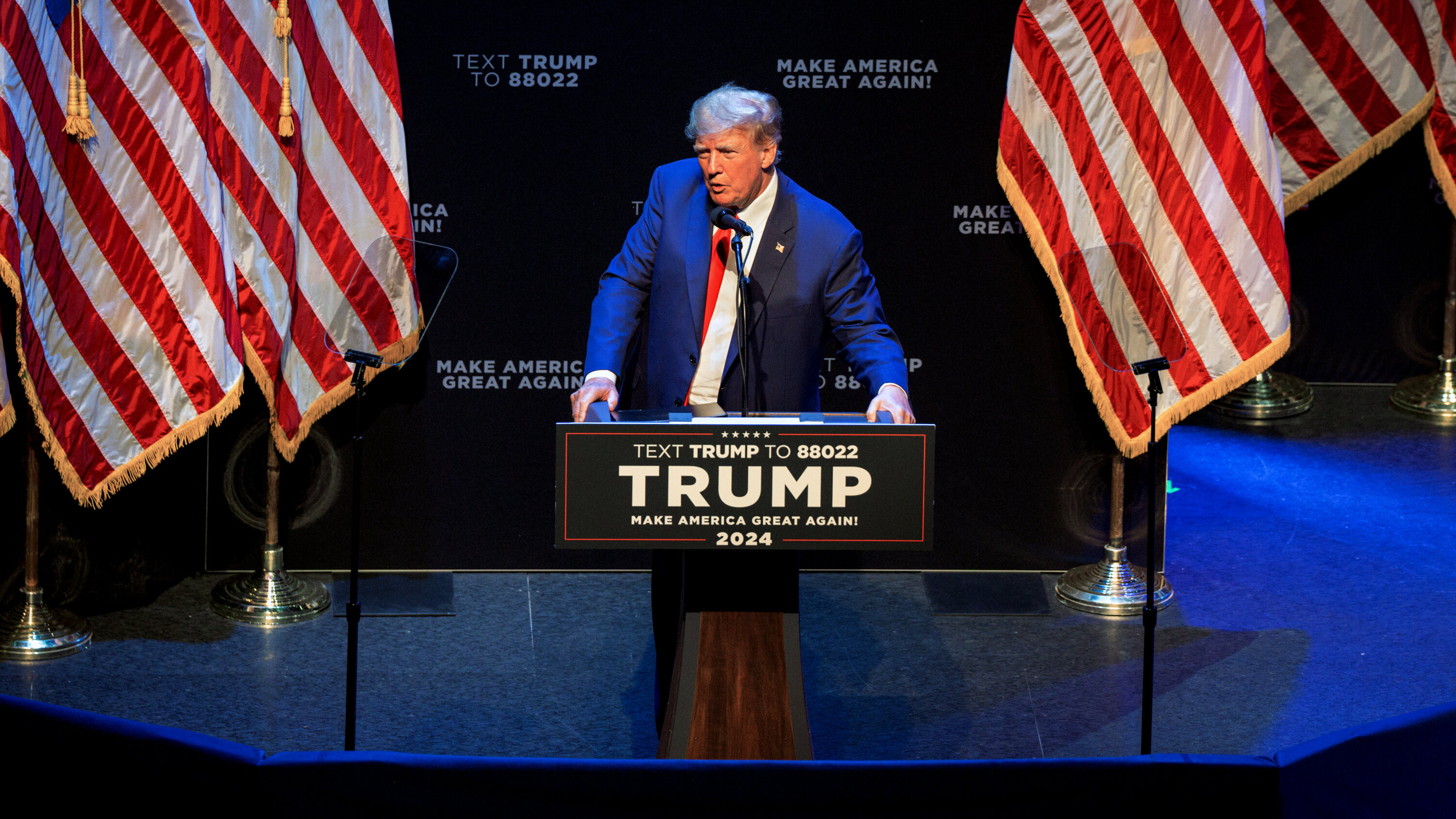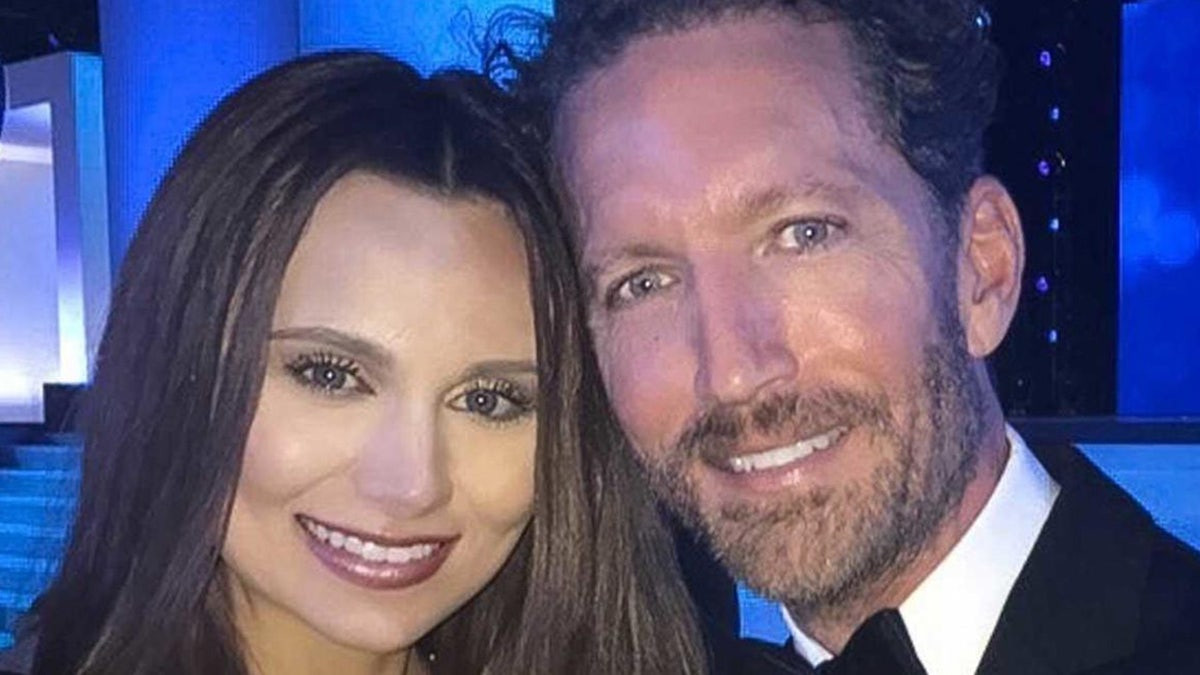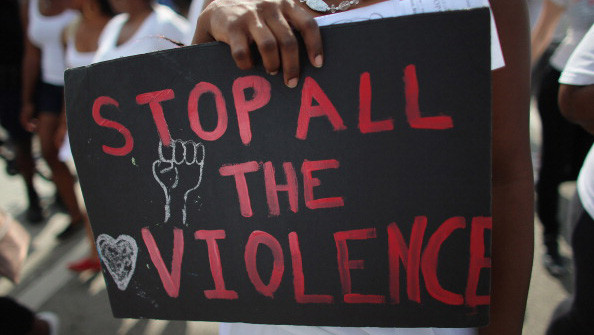For almost as long as I can remember, voters who understand the vital importance of the pro-life cause have had their consciences held captive by politics. Every election year, pro-lifers have been bullied, and have bullied each other, into voting for one candidate and shunning the other, with their very souls allegedly on the line.
People who more or less held the same views were invited or outright commanded to denounce each other as the enemy. But now that’s over. It’s done. We’re free.
Oh, folks on both sides are still arguing that it’s crystal clear we absolutely must vote this way or that way if we want to call ourselves pro-life. But now, neither party is willing to even fake an interest in actually being pro-life. The masks have come off entirely.
“But Simcha,” you may say. “I thought Trump and the Republicans were the pro-life party? Sure, Trump isn’t perfect but we’re looking for a politician, not a saint, and he’s clearly the only one who is willing to stand up to protect the unborn. At least compared to the alternative.”
Except that he just said into a reporter’s microphone that six weeks is “too short; there has to be more time … I want more weeks”; ie, the law should give women more time to decide whether or not to get an abortion (or, as often happens, more time to get pressured or coerced into an abortion). He said he would vote for just that in the upcoming Florida election.
Then, when people got upset, his campaign said he didn’t really mean it or really say anything and we’re just dumb for thinking he said anything.
He also said that, if he’s elected, his government will cover the cost of IVF for anyone who wants it, because “we want more babies.” IVF is intrinsically immoral because it replaces a sacred, creative act of love with a mechanised act of production in a lab. But even if that doesn’t bother you, IVF means millions of extra embryos are made, and then either imprisoned in a freezer indefinitely, or thrown away.
There is no IVF that is untainted by this wholesale murder of tiny humans. Babies are good; but cranking out babies like widgets and then throwing most of them away? That’s wrong.
This same Republican party absolutely lost their minds a few years ago when President Barack Obama said he was going to require Catholic employers to include contraception in their insurance coverage for employees. We were told this was a direct violation of religious freedom, and we must vote for Trump so he can liberate us from a government that would spend our tax dollars on the culture of death.
And now here we are. Maybe you will reply, “Well, this is all a shame, but you have to admit, he appointed judges to the supreme court who did what he promised, and they overturned Roe v Wade! Hard to argue with that as a pro-life win!”
Except that since this happened, the numbers of abortions have gone up. Yes, really. Why? My guess is this: Republican laws in many states were written so poorly, and in some cases so idiotically, that medical professionals really didn’t know what they were supposed to do in emergency situations. Democrats seized on this confusion and escalated the panic and chaos because it makes for a good fundraiser.
Both parties made it seem like the US was on the verge of organising torch-wielding posses to hunt down and brutalise any random woman with a suspiciously round belly. So a vulnerable woman on the fence about whether to go ahead with a pregnancy or not might have smelled the panic in the air, got scared, and figured it was safer to go ahead and get that abortion while it was still early, legal, and simple.
And this happened a lot. In other words, exactly what I predicted would happen back in 2016.
“All right, Simcha,” you may continue. “Obviously the Republicans have not been genuinely pro-life for quite some time. This isn’t news. So, surely the clear answer is to turn your backs on Republicans and vote for the Democrats, because even though they’re fine with abortion, at least they tend to show some compassion to other vulnerable populations. At least they have steadfastly opposed, for instance, government executions.”
But actually, they don’t. The anti-death penalty plank was quietly removed from the Democratic platform. And the Democratic candidate, Kamala Harris, the “joy” lady, was a prosecutor whose office blocked DNA evidence that would have exonerated a Black man on death row. She was also very gung ho about putting people in jail for smoking pot. That’s her legacy.
If you want to ignore her history as a prosecutor, that leaves very little else on her resume at all. Certainly nothing that would warm a pro-lifer or even a whole-lifer’s heart. She can’t even claim compassion toward migrants: The Biden administration, with Harris as VP, ended up deporting just as many migrants as Trump.
“But what about independents? Can’t we just scrap both parties and take the alternate route?”
Well, Robert F. Kennedy recently suspended his campaign, and has glommed onto Trump; but if you’re thinking that an independent influence is exactly what we need to temper the extremism of the Trump candidacy, consider that, in a recently-released video, Kennedy can be heard chatting with Ghislaine Maxwell about the good old days, when he used to run a secret gambling ring for gladiatorial games between pregnant teens.
I made that up, but you did wonder for a second, right? Anyway RFK is an absolute wash on life issues, doesn’t care, is willing to say anything; and is nuts.
And yes, you can vote for the Solidarity Party. That’s probably what I’ll do, because I was raised to understand that you can’t just not vote. But if I do vote that way, it will be purely, entirely for the sake of retaining my dignity, like washing my face before reporting to the guillotine.
As I said, pro-lifers are now free. Free from spending even one fraction of a second of our time wondering which party we should swear allegiance to, because they both openly despise us and are working against the most basic things we value. It’s like being a child who’s seen his mother and father both waste away with horrible, heritable diseases, and wondering which side you’ll take after—and then suddenly finding out you’re adopted.
You don’t have anything in common with any of these people! You are free—not only free from, but free to.
Were you planning to donate money to one party or the other? Now you’re free to send it to a food pantry, instead. Were you expecting to spend some time arguing with people about politics? Now you’re free to read poetry, instead. Put on an eye mask and put on some music, or do a little gardening. I promise you, this will be time better spent.
We’ve never been so free to vote however we want, as long as we’re not voting with the intention of hurting somebody innocent.
But we don’t have to spend a single moment of our time thinking that our vote says anything about us as pro-lifers. It doesn’t. We’re free.
The Pro-Choice Party: The Democratic Ticket of Kamala Harris and Tim Walz
Unprecedented events in the 2024 United States presidential election have jarred us in recent weeks, sending shock waves through our society. First, on July 13, a would-be assassin nearly succeeding in killing Donald Trump. Then, only eight days later, President Joe Biden dropped out of the race. The AP reported this decision came “after a disastrous debate with Donald Trump that raised doubts about the incumbent’s fitness for office.”
Biden endorsed Vice President Kamala Harris to take his place, urging Democrats to rally behind her. After a contest between Trump and Biden seemed clear for months, Harris’s presumptive nomination has cast her as the new voice of Democratic Party. Even more recently, Harris announced her choice for Vice President, Minnesota Governor Tim Walz.
In an interesting turn, enthusiasm for the Democratic Harris-Walz ticket has grown alongside increasing disappointment in the Republican Trump-Vance campaign.
There are many reasons for this, of course, but as a Christian, the tragedy of abortion is of significant concern. And, thus, for both campaigns, we must take a sober look at abortion policy.
First, the Republican National Committee has abandoned its pro-life plank for the first time in decades, reminding us again that the party is committed to Donald Trump and his views, and quick to jettison positions that it held only weeks before.
When the party dropped the language (and ignored the pro-life leaders who spoke up), I said, “I’ve voted for a convictional pro-life candidate in every presidential election since I was allowed to vote. It’s not a political choice, it’s a moral choice. I’ll vote pro-life again this time, because the unborn still matter.”
I still will.
Most evangelical Christians will factor in the life issue, because for them, like me, life is a paramount issue. I encourage you to value the unborn as well.
I’ve written often about the importance of the pro-life position. After Dobbs overturned Roe v. Wade, something for which many of us worked and prayer, I said in USA Today, “In a sense, our work is just beginning…we still have to work to make abortion unthinkable, by helping people to see the value of unborn life and demonstrating consistent and holistic values of life.”
And, as Christians, we do need to speak up on these issues. When Massachusetts Senator Ed Markey posted a picture of himself wearing an abortion pin with a heart inside the first “o,” I noted the irony: “A tiny heart? Do they not even see the irony? Pastors, I encourage you to speak up on issues of life. Help build a culture of life that changes hearts and minds.”
I still think we should.
As I’ve said before, Christians should approach an election like an umpire approaches a baseball game. We don’t uncritically join or cheer for a team. We call balls, strikes, and fouls. We support a candidate when they speak for biblical values, and we call them out when they fail to do so. I’ve consistently criticized and commended presidents and candidates of both parties—which, it appears, bothers some people.
I cried foul when Republicans softened their stance on pro-life matters this July. With the Republican Party becoming a pro-choice-by-state party and with the Democratic Party portraying Republicans as the radical side on abortion, it is important to know where the new Democratic ticket stands.
Abortion has been the top issue for Harris for years. The Washington Post listed her positions on five key issues: abortion, the border, Israel and Gaza, the economy and climate. There is no doubt as to which is most important, as The Post observes, “By far, Harris’ best-known policy position is that people should have access to abortion care.”
This is a central theme.
Harris’ record proves that she prioritizes abortion and holds radical ideas on the issue, as Ryan Anderson, president of the Ethics and Public Policy Center, has shown.
“Kamala Harris is an abortion extremist. Her words and actions over the course of her career—as California’s attorney general, as United States senator, and as vice president—leave no doubt as to that fact,” Anderson writes.
“Since becoming the presumptive Democratic nominee for the presidency,” he adds, “Harris has sown confusion about her political vision by reversing many of her own publicly stated positions. But one thing remains constant: Abortion is her top priority.”
Justin Taylor recently noted some examples of Harris’s abortion extremism:
There are all easily verifiable with a simple Google search.
“Her choices—to visit a Planned Parenthood in Minnesota, a state competing to have the most permissive abortion regime in the nation, and to select Minnesota’s radically pro-abortion governor as her running mate—flow from her priorities,” Anderson writes.
This is important.
Tim Walz: The Most Radical Pro-Abortion Governor in America?
What about Harris’ selection for vice president, Tim Walz?
Minnesota was the first state to enact pro-abortion legislation after the Dobbs ruling by SCOTUS. Anderson points out how Walz signed legislation that declared abortion to be a fundamental right through all nine months of pregnancy.
You read that correctly—all nine months. To quote one of many fact checks, “The statute does not include any specific prohibitions on abortions at any stage of pregnancy.”
Anderson notes that Republicans are not without their issues, as they have weakened their support for the defense of unborn children. But this “should not obscure the fact that the Democratic Party under Harris is as radically pro-abortion as it can possibly be.”
Two things can be true at the same time—the Republicans have changed their views, which rightly leads to many questions about what that ticket really is committed to, and the Democratic Party is now the most radical party on abortion in American history—and certainly among the most radical in the world.
Remember, under Roe v. Wade, the United States was one of only seven countries in the world with such radical abortion laws, alongside nations like North Korea and China, allowing elective abortions after 20 weeks. This point was fact-checked by The Washington Post, no less.
Taylor added details on Walz’s extreme views:
This is part of why it is so strange to see Evangelicals for Harris, who posted, “We do not believe in abortion up until birth, neither does @KamalaHarris. We believe in common sense pro-life policies that protect life at ALL stages. From conception to grave.”
Vice President Harris may be trying to nuance that she does not believe in abortion up to the moment of birth—which I hope someone will ask about at a press conference or a debate—but for Christians to be defending any of Harris’ views on abortion is a far departure from the view that Christians have held for two millennia.
Facts really matter here. After the embarrassment of Pro-life Evangelicals for Biden, who were shocked when Biden continued his aggressive pro-choice policies, it is surprising to see Evangelicals for Harris make the same mistake.
“As pro-life leaders in the evangelical community, we publicly supported President Biden’s candidacy with the understanding that there would be engagement [with] us on the issue of abortion and particularly the Hyde Amendment,” Evangelicals for Biden wrote of President Biden. “We feel used and betrayed and have no intention of simply watching these kinds of efforts happen from the sidelines.”
Instead, The Harris-Walz ticket already has told you what it will do—adopt the most radical abortion policies in this nation’s history. For Evangelicals for Harris, they know this going in.
The Final Christian Generation?
While I’m grateful for so much as an American, I must remember that Christians serve a greater kingdom than the United States. The Lord of our kingdom calls us to be salt and light in a dark and unsavory world (Matt. 5:13–16).
Speaking up for those who have no voice is part of that call.
As you consider your vote, please keep in mind those who have no voice: the unborn.
Facts matter. Calling balls and strikes matters. The Republicans have decided that pro-lifers have nowhere to go, and now hold similar views as pro-choice Democrats did a few decades ago. And the Democratic Party is among the most radical on abortion in modern history.
I don’t tell people how to vote—that’s binding the conscience in ways in which I am not comfortable, but facts are our friends. And these are the facts.
However, I will say this: The unborn deserve better, and I’ll use my vote accordingly.
I still will.
“I don’t understand at all why pro-life Americans say they won’t vote for Donald Trump,” said the Hungarian pro-life activist sitting across from me. Well, let me explain—and say why European pro-life voices, however few, are urgently needed to steady the political thinking of their American counterparts.
Pro-life American Christians have been in crisis during this election season as Trump has steadily abandoned pro-life policies, and attempted to establish his pro-choice bona fides. The loudest cry of alarm went up when Trump last week said he would vote for a Florida ballot initiative that would effectively restore the permissive Roe v. Wade standard in state law. Trump’s campaign walked that back, which temporarily doused the fire, but make no mistake: pro-life conservatives are running scared.
They—we, because I am one of them—should be. It was always a fiction that Trump was pro-life. Only the truest of the MAGA faithful believed it. Nevertheless, Trump provided the Supreme Court justices who finally achieved the great goal of the pro-life movement for nearly fifty years: slaying the Roe dragon.
European readers should be aware that the effect of this was not to ban abortion, but simply to declare that there is no constitutional right to the procedure, thus, in the American system, leaving the decision to state legislatures. The Dobbs decision of 2022, which overturned 1973’s Roe ruling, returned the abortion issue to democratic political deliberation.
So far, Dobbs has been a Pyrrhic victory for the pro-life side, which has lost all seven of the state referenda on abortion since Dobbs—even in red states. Trump has been backpedaling on abortion because polls show that the pro-choice line is popular with American voters. Many pro-lifers, for decades the most reliable GOP voters, are shell-shocked by the Trumpified party’s swift collapse on abortion.
They shouldn’t be. America is a pro-choice country. According to a Gallup poll, only 12% believe abortion should be illegal in all circumstances. Almost three times as many—35%—believe it should be legal in any circumstance. Fifty percent say abortion should be legal under some circumstances (3% had no opinion). So: 85% believe in some form of legalized abortion.
Plus, 60% polled say that overturning Roe was a bad thing. That figure is not new. As Gallup says that number has been stable for the more than three decades that it has been polling on the question. It was easy for Americans who don’t feel strongly about abortion rights to downplay the issue in their voting when Roe was the law of the land. Now that abortion has been put back into political play, being pro-life has become an election liability.
What’s more, when it comes to in vitro fertilization (IVF), Americans overwhelmingly endorse it. An overwhelming 82% endorse the practice, while only 10% oppose it. IVF involves the lab creation of surplus embryos, which are usually frozen and stored. If one believes that life begins at conception, there’s no way around it: these embryonic human lives will one day die when they are thawed. There is no way to be consistently pro-life and pro-IVF—but a lot of American pro-lifers are. In fact, if the argument for or against abortion rights stands or falls on the moral status of the embryo at conception, you could argue that the only consistent thinkers about abortion are idealists at both extremes.
The messy truth is that most Americans are squeamish about abortion, but most see it as a socially necessary evil. In a democracy, you should not be surprised when politicians shift their positions to go where the votes are.
In Trump’s case, there is a major difference between his moderate pro-choice position and Kamala Harris’s view. Trump wants to leave it to the states to decide. Conservative states can tailor their laws to the views of the majority there, and liberal states can do likewise. Harris, though, believes in imposing unrestricted abortion on every state, through federal law.
And this is what my Hungarian pro-life activist friend was getting at. She was visibly shocked that this is even an issue for American abortion opponents. Why would you see no meaningful distinction between someone who won’t give you everything you want on the life issue, versus someone who would take away everything you have, and shove her pro-abortion beliefs down your throat?
Besides, said the Hungarian, the Democratic Party is so opposed to what conservative Christians believe on other key issues—LGBT rights, religious liberty, and others—that the idea of U.S. Christians abandoning Trump to punish him is simply bizarre.
I told my companion that I agreed with her, and that her view is the result of living as a pro-life Christian in a culture and on a continent that has been de-Christianizing for several generations. America is not yet in that post-Christian spiritual desert, but its people are moving there quickly. I suspect that pro-lifers, most of whom are Christians, have been shocked by Trump’s walking away from pro-life orthodoxy because they haven’t confronted how post-Christian America has become in our lifetimes.
The Christian Culture Wars: A Turning Point for American Pro-Lifers
Put another way, they are shaken up by this because they—because we—are part of what it likely to be The Final Christian Generation.
This is a reference to The Final Pagan Generation, a 2015 book by historian Edward J. Watts. The title refers to Roman pagan elites born at the beginning of the fourth century, when the Empire changed gradually from pagan to Christian.
What made them the “final” generation is not that pagans ceased to exist in Roman society after they died out. Rather, as Watts tells it, they were the last generation in Rome’s history to have lived in a time when paganism was the default religious mode of their civilization.
Historians typically depict the fourth century as a time of great tumult and conflict between the dying pagan order and the rising Christian one—a culture war that began when the emperor Constantine ended formal persecution of Christians with the Edict of Milan (313), and culminated in 380, when the Emperor Theodosius made Christianity the state religion.
This, argues Watts, is misleading. Ordinary Romans of the era would not have registered the shocks to the system that are now apparent from historical distance. Watts puts it like this: the 1969 Woodstock music festival is today regarded as a primary symbol of the revolutionary youth culture of the time, but the overwhelming majority of Americans neither attended it nor led lives consonant with hippie values. Yet we now know that Woodstock really did stand for a major turning point in American culture.
It was like that for the Romans too. The violent to-and-fro as Christians and pagans struggled for power over the course of the century went largely unnoticed by pagan elites. Even the destructive clashes of the 380s and 390s were not taken as seriously by the older pagans and Christians as they ought to have been. Says Watts, “They reacted instead as if they could not imagine a world in which traditional [pagan] religious practices did not have a part.”
Watts goes on:
The “final pagan generation” … is made up of the last group of elite Romans, both pagan and Christian, who were born into a world in which most people believed that the pagan public religious order of the past few millennia would continue indefinitely. They were the last Romans to grow up in a world that simply could not imagine a Roman world dominated by a Christian majority. This critical failure of imagination is completely understandable.
Why understandable? Because even though the deep cultural currents of social life carried Roman society inexorably in a Christian direction, daily life continued much as it always had. The temples were still open. The pagan religious festivals continued as they always had. Rome had been pagan for millennia, and always would be, they thought. They had been born into a pagan world, had grown up in it, started families and made careers in it, and had retired in it.
Beneath their notice, though, everything changed. The grandchildren of elites born into what they thought was a stable pagan order became Christians—and had no interest in tolerating paganism. Near century’s end, their elders were shocked to discover how weak their own position had become. Writes Watts:
This mattered particularly when Christian leaders acted aggressively against traditional religion in the 380s and 390s. In those circumstances, the final pagan generation sometimes seemed as influential as the president of Polaroid in the age of the smartphone.
It is impossible to read Watts’s book today without thinking, and thinking hard, about the post-Christian state of Western societies. Again, it is much easier for European Christians to grasp this than for American believers. For decades, the United States has been a great outlier in the West in terms of religiosity. That changed dramatically beginning around 1993, for reasons that are not entirely clear, but which likely has something to do with the end of the Cold War, and the vanquishing of the atheist Soviet Union.
It is also the case that Generation X, the first post-Boomer cohort, came into adulthood in the early 1990s. Though many may have been raised as churchgoers, they didn’t all stick with the faith when they set out to establish their own lives independent from their parents. The collapse has gathered speed in the Millennial and Zoomer generations. Today, the so-called “Nones”—atheists, agnostics, and those who claim no particular religious tradition—are the largest religious demographic in America. In fact, the Zoomers—those born after 1996—are the first generation in U.S. history in which a majority have no particular religion.
So: The churches still remain open in the United States, and Christian festivals of Christmas and Easter still take place, and it is entirely understandable how middle-aged and older Americans would still think of the U.S. as a Christian nation. But they’re wrong.
On the bright side, it might not be as bad for U.S. Christians as it was for Roman pagans. Recent polling data show that the rise of the Nones might have come to an end. Besides, an enfeebled Roman paganism faced a strong challenger in Christianity. No rival faith—not Islam, not neopaganism—has yet emerged to position itself as a replacement for desiccated Christianity. The post-Christians seem to have settled into the kind of consumerist nihilism that the French writer Michel Houellebecq depicts in his novels.
Nevertheless, the grand decline of Christianity has had profound social and political effects in American life. The civil rights speeches of Martin Luther King in the 1950s and 1960s were saturated with Biblical language and Christian moral concepts. They would be unthinkable today. The shattering of the Christian order by the Sexual Revolution—identified in 1966 by sociologist Philip Rieff as the century’s most consequential uprising—not only made abortion on demand possible, but also the triumph of gay rights, and now the mainstreaming of transgenderism.
In the 1992 Casey decision reaffirming the core of the Roe ruling, which found an implied right to abortion in the constitutionally guaranteed right to privacy, Supreme Court justice Anthony Kennedy infamously wrote for the majority, “At the heart of liberty is the right to define one’s own concept of existence, of meaning, of the universe, and of the mystery of human life.”
That line was widely and justly mocked by conservatives as being sentimental libertarian gasbaggery. How can you make and judge laws on such a vacuous basis?
However risible Justice Kennedy’s legal philosophy was here, he understood something important about the way actual existing Americans thought about freedom. Three decades on from Casey, it is clear that Kennedy’s radical subjectivism is a more reliable guide to public sentiment about sexual matters than anything Christian legal thinkers have produced. This is in part because, as philosopher Alasdair MacIntyre first observed in the 1980s, moral discourse in American life is now dominated by “emotivism”—roughly, the idea that if it feels true, it must be true, and who are you to say otherwise?
The pro-life legal movement has been led chiefly by Catholic judges and legal scholars. The U.S. Catholic Church has been stalwartly pro-life in its teaching and activism. And yet, most U.S. Catholics today are pro-choice—and for that matter, pro-LGBT rights. In 2014, at a private seminar attended mostly by Catholic conservative intellectuals, I saw the oldest members of the group—men and women who had been intellectually formed in the 1950s and early 1960s—struggling to understand what the younger participants, all professors at Catholic colleges, were telling them: that the Catholic students they see today arrive knowing virtually nothing about Catholic teaching, and why it matters.
It’s not so much that Christian conservatives have lost the culture war—though we have—as it is that younger Americans don’t realize that the culture war existed. They are the first truly post-Christian generation, in that they were born into a world in which the old Christian verities no longer obtain.
A Time for Cunning, Not Idealism
It is sometimes said that we are also living in the emergence of a “postliberal” political order. This shocks the Final Liberal Generation—both left-liberals and right-liberals—who are left shocked and paralyzed by violence on campus perpetrated by fanatical young illiberal leftists. These mobs tear down statues with fervor that recalls ancient Christian crowds destroying pagan temples. Sooner or later, it will dawn on them that liberal democracy emerged out of Christianity, as historian Tom Holland rousingly showed in his book Dominion, and probably won’t survive Christianity’s eclipse.
In the meantime, American pro-lifers would do well to reach out for advice to European activists who share their passion for protecting the unborn. European pro-lifers have had to labor for many years in post-Christian cultures where abortion is considered a fundamental right. Even my Hungarian friend admitted that if Hungary’s Viktor Orbán, the most openly and actively Christian of any European leader, proposed turning back the country’s liberal abortion laws, he would soon find himself thrown out of office.
Overturning Roe v. Wade was a monumental achievement, one legions of pro-life activists spent half a century marching and praying for. It would not have happened had Hillary Clinton defeated Donald Trump in 2016. Pro-lifers should be grateful for what Trump did for us, but also accept that the post-Roe era and the post-Christian era now combine to create a highly unfavorable political environment for us. Protecting unborn life in this new dispensation is going to require far more cunning than idealism. Ask European pro-lifers; they know.

















